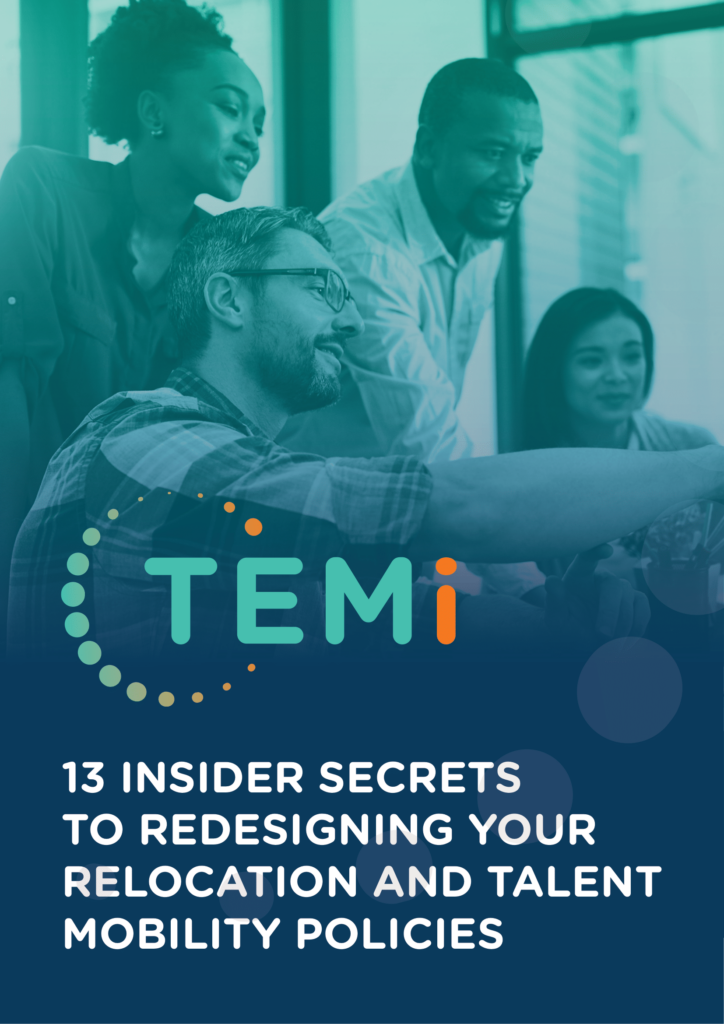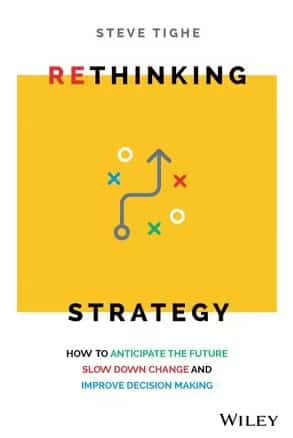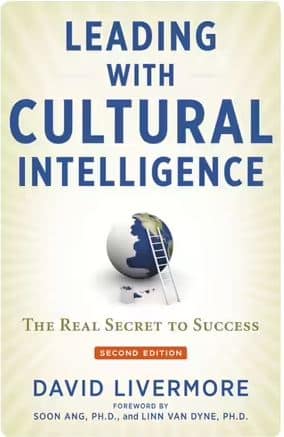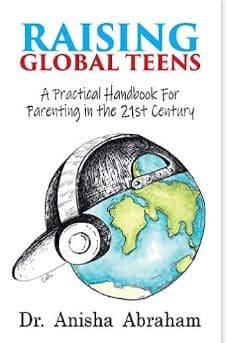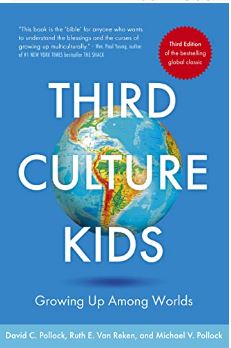When redesigning relocation and talent mobility policies, HR and talent mobility practitioners should ask a variety of questions to ensure efficacy and alignment with organisational goals and employee needs. Here are 13 key questions you should consider.
Resources
Rethinking Strategy
Seize opportunity from uncertainty
What if you could use strategy to turn market volatility to your competitive advantage? Rethinking Strategy shows you how to anticipate and benefit from emerging market shifts and free your organisation from a cycle of disruption and response. In this ground-breaking book, author and strategist Steve Tighe helps you use scenarios to envisage what your industry and organisation could look like in the future and prepare for what’s to come. Through detailed case studies and practical tools, this guide reveals how to make strategy development your organisation’s principal creative and learning activity.
- anticipate impending market shifts beforethey emerge
- slow down change by making the future familiar
- unlock the entrepreneurial talent that lies within your organisation
- mobilise an army of internal advocates to drive strategy execution
- embed foresight into your planning and innovation processes
Leading with Cultural Intelligence
Succeeding in today’s global market requires a new set of skills than it did when the pioneers of the twentieth century were making their mark but don’t let that intimidate you from expanding your business beyond our borders.
In order to negotiate with vendors from other countries, it is not necessary to immerse yourself in the culture for an extended period of time, or take a month-long trip to learn what people are like. As cross-cultural interactions become increasingly virtual, cultural intelligence—or CQ—becomes the key to taking your business global, and doing so effectively.
Having done training and consulting for leaders in more than 100 countries, David Livermore, president and partner at the Cultural Intelligence Center, has detailed a four-step model for improving your CQ and maximizing your impact in managing across cultures.
Raising Global Teens
Globalization has given many of us unparalleled opportunities to work, travel, fall in love, and raise kids all over the world. But it has made being a teen more complicated than ever. Imagine having to discover your identity and place in the world when you keep having to move communities, your parents are from different backgrounds, you’re exposed to multiple cultures daily or faced with challenges such as global warming and pandemics. How can we help these teensbe happy, healthy, and resilient?Raising Global Teens explores the hot topics adolescents experience today: identity, social media, body image, traumatic events, puberty, drugs and stress all in the context of our modern, mobile world.
Third Culture Kids
For more than a decade, Third Culture Kids has been the authority on “TCKs” – children of expatriates, missionaries, military personnel and others who live and work abroad. With a significant part of their developmental years spent outside of their passport country, TCKs create their own, unique “third” cultures.
Highlighting dramatic changes brought about by instant communication and ever-evolving mobility patterns, Third Culture Kids reveals the hidden diversity in our world and challenges traditional notions of identity and “home” – and shows us how the TCK experience is becoming increasingly common and valuable.
Being A Distance Grandparent
Helen Ellis is a New Zealand researcher, author, anthropologist, veteran of Distance Grandparenting and the Founder of DistanceFamilies.com. Three of her four children and four of her six grandchildren live 16 to 30 flight hours away in America and England.
In her research she asked the question: “How is distance grandparenting for you?” Her book, Being a Distance Grandparent – a Book for ALL Generations, combines that experience with her extensive global research.
This is the first of a three-book series about distance families – each publication focusing on a different generation (grandparents, sons and daughters and grandchildren).
Her goal is to support each generation to understand ‘how it is’ for the other and pass on some ‘how to do it’ tips.
Models for Practice with Immigrants & Refugees
The purpose of Lundy’s Practice with Immigrants and Refugees: Theory, Practice and Culture, is to establish a foundational framework for professionals working with immigrants and refugees. The content is grounded in ecological systems theory and is applicable to professionals in a variety of disciplines who work with the identified population.
The text focuses on a transnational practice, emphasizing the relevance of Western approaches to working with immigrants and refugees while reorienting Western concepts to be more culturally-sensitive from a domestic and international perspective.
Remote Work Revolution
A Harvard Business School professor and leading expert in virtual and global work provides remote workers and leaders with the best practices necessary to perform at the highest levels in their organizations.
The rapid and unprecedented changes brought on by Covid-19 have accelerated the transition to remote working, requiring the wholesale migration of nearly entire companies to virtual work in just weeks, leaving managers and employees scrambling to adjust. This massive transition has forced companies to rapidly advance their digital footprint, using cloud, storage, cybersecurity, and device tools to accommodate their new remote workforce.
Experiencing the benefits of remote working—including nonexistent commute times, lower operational costs, and a larger pool of global job applicants many companies, including Twitter and Google, plan to permanently incorporate remote days or give employees the option to work from home full-time. But virtual work has it challenges. Employees feel lost, isolated, out of sync, and out of sight. They want to know how to build trust, maintain connections without in-person interactions, and a proper work/life balance. Managers want to know how to lead virtually, how to keep their teams motivated, what digital tools they’ll need, and how to keep employees productive.
Remote Work Revolution is essential for navigating the enduring challenges teams and managers face.
Running Remote
Master the Lessons from the World’s Most Successful Remote-Work Pioneers

